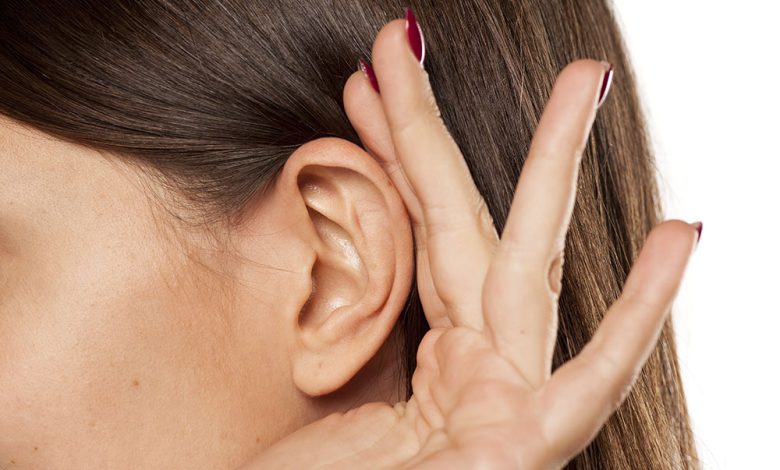Which Sudafed Is Best For Blocked Ears?

Which Sudafed Is Best For Blocked Ears?
Sudafed and Sudafed PE are both brand-name medications used to treat nasal and sinus congestion caused by allergies, colds, and other respiratory conditions. However, they contain different active ingredients.
Sudafed contains pseudoephedrine, which is a stronger decongestant than the active ingredient in Sudafed PE, phenylephrine. Pseudoephedrine is available behind the counter at the pharmacy due to its potential for misuse and abuse, while phenylephrine is available over-the-counter. Both medications work by narrowing the blood vessels in the nasal passages to relieve congestion.
It’s important to note that pseudoephedrine is a controlled substance, as it can be used to make illegal drugs such as methamphetamine. For this reason, Sudafed and other products containing pseudoephedrine are sold behind the counter in pharmacies, and buyers are required to show identification and sign a logbook to purchase them. Some states have additional restrictions on the sale of pseudoephedrine products.
Which Sudafed Is Best For Blocked Ears?
Sudafed (pseudoephedrine) is better than Sudafed PE (phenylephrine) when it comes to blocked ears and the treatment of nasal and sinus congestion. This is because the body absorbs about 100% of Sudafed via the intestines when taken orally while only about 38% of Sudafed PE doses are absorbed. In other words, more Sudafed travels from your gut into your bloodstream, allowing it to get where it needs to go to relieve your congestion.
However, Sudafed is likely to cause certain side effects, such as increased heart rate and blood pressure, compared to Sudafed PE. In addition, Sudafed’s effects also tend to last a bit longer. You can take Sudafed every 4 to 6 hours as needed, while Sudafed PE can be taken as often as every 4 hours.
The best form (tablets, capsules, and liquids) of Sudafed for blocked ears would depend on personal preferences and the severity of the symptoms. Sudafed is available in different forms, including tablets, capsules, and liquids. Tablets and capsules are often preferred for their convenience and longer-lasting effects, while liquids may be faster-acting and more suitable for children or people who have difficulty swallowing pills.
If you have blocked ears due to congestion, Sudafed (pseudoephedrine) can help relieve the symptoms. Sudafed is a decongestant that works by narrowing the blood vessels in the nasal passages, which reduces swelling and congestion in the ears as well.
In addition to Sudafed, it’s also important to stay hydrated and use a saline nasal spray or drops to help flush out mucus and relieve congestion in the ears. If your symptoms persist or worsen, it’s important to consult with your healthcare provider for further evaluation and treatment.
Sudafed Dosage For Blocked Ears
The recommended dosage of Sudafed (pseudoephedrine) for adults and children 12 years and older is 60 milligrams every four to six hours, up to a maximum of 240 milligrams per day. The dosage for children between 6 and 12 years of age is 30 milligrams every four to six hours, up to a maximum of 120 milligrams per day. The dosage for children under 6 years of age should be determined by a healthcare provider.
When taking Sudafed for blocked ears, it’s important to follow the recommended dosage instructions on the package or as directed by your healthcare provider. It’s also important to drink plenty of fluids and use a saline nasal spray or drops to help relieve congestion and flush out mucus.
If your symptoms persist or worsen, or if you experience any side effects, such as increased heart rate or blood pressure, it’s important to seek medical attention. Your healthcare provider may recommend a different medication or dosage based on your individual needs and medical history.
Will I experience any side effects while using Sudafed for blocked ears?
Sudafed (pseudoephedrine) can cause a variety of side effects, including:
• Nervousness, restlessness, or irritability
• Headache, dizziness, or lightheadedness
• Trouble sleeping or insomnia
• Increased heart rate or blood pressure
• Nausea, vomiting, or stomach upset
• Difficulty urinating or decreased urine output
• Dry mouth or throat
• Sweating or flushing
Less common but more serious side effects may include allergic reactions, severe dizziness or fainting, hallucinations, or seizures. If you experience any of these symptoms, seek medical attention immediately.
It’s important to note that pseudoephedrine is a stimulant and can interact with other medications, such as certain antidepressants, to increase the risk of side effects. Before taking Sudafed, be sure to discuss your medical history and any other medications you are taking with your healthcare provider to ensure it is safe for you to use.
Can I combine Sudafed with other medications for blocked ears?
It depends on the other medications you are considering combining with Sudafed. Before combining any medications, you should always consult with your healthcare provider or pharmacist to ensure that it is safe to do so.
Sudafed (pseudoephedrine) is a decongestant that can help relieve nasal and sinus congestion, which may also help relieve blocked ears caused by congestion. However, it is important to be cautious when combining Sudafed with other medications that can also cause similar side effects, such as increased heart rate or blood pressure.
For example, combining Sudafed with certain types of antidepressants, such as monoamine oxidase inhibitors (MAOIs), can increase the risk of high blood pressure or other serious side effects. Similarly, combining Sudafed with other stimulants, such as caffeine or some cold and flu medications, can also increase the risk of side effects.
If you are considering combining Sudafed with other medications, it’s important to speak with your healthcare provider or pharmacist to ensure that it is safe to do so and to determine the appropriate dosage and frequency of use.
Is Sudafed safe to use?
Sudafed is generally considered safe when used as directed, but it can cause side effects, particularly in people with certain medical conditions or those who are taking certain medications. It’s important to talk to your healthcare provider before using Sudafed to make sure it’s safe for you.
Is Sudafed addictive?
Sudafed is not considered to be addictive, but it is a controlled substance due to its potential for abuse and use in the production of illegal drugs.





